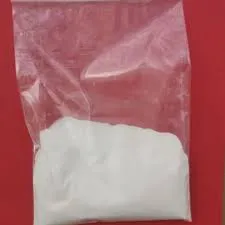The Role of Chemicals in Sludge Treatment An Overview
Sludge treatment is a critical aspect of wastewater management and environmental protection. As urbanization and industrial processes generate substantial amounts of wastewater, the effective treatment of sludge—particularly the residual material generated during wastewater treatment—is essential. Among the various treatment methods employed, the use of chemicals plays a pivotal role in facilitating the efficient and safe disposal or reuse of sludge. This article explores the types of chemicals used in sludge treatment and their significance in enhancing operational efficiencies and mitigating environmental impacts.
Understanding Sludge and Its Treatment
Sludge refers to the semi-solid byproducts of wastewater treatment processes, primarily consisting of organic matter, microbial biomass, and inorganic solids. The management of sludge is paramount due to its potential environmental hazards, such as the contamination of soil and water bodies if improperly handled. Chemical treatment is one of the most effective methods for transforming sludge into manageable and less harmful forms, enabling its safe disposal or even conversion into valuable products like fertilizers or biogas.
Key Chemicals Used in Sludge Treatment
1. Coagulants and Flocculants One of the primary types of chemicals utilized in sludge treatment is coagulants, which are substances that help aggregate fine particles into larger clusters, or flocs. Common coagulants include aluminum sulfate (alum), ferric chloride, and polyaluminum chloride. These chemicals are effective in reducing the volume of sludge and improving its dewaterability. Once the flocculation process is complete, separation of the solids from the liquid phase is achieved through sedimentation or filtration.
2. pH Adjusters The pH of sludge can significantly impact the efficiency of various treatment processes, including digestion and stabilization. Chemicals such as lime (calcium hydroxide) are often used to raise the pH level, promoting better decomposition of organic materials and the reduction of pathogens. Conversely, sulfuric acid may be employed to lower pH in specific contexts, ensuring optimal conditions for microbial activity.
sludge treatment chemicals

3. Antimicrobial Agents The presence of pathogens in sludge poses health risks, necessitating the use of antimicrobial agents. Chemical treatments, including the application of chlorine or ozone, can effectively disinfect sludge, reducing the potential for public health hazards. These agents target the microbial population, ensuring that treated sludge is safe for land application or disposal.
4. Polymers Synthetic polymers play a vital role in enhancing the dewatering process of sludge. These flocculants aid in the binding of solids, facilitating the removal of water and leading to a drier, more manageable end product. The use of polymers not only improves the efficiency of sludge handling but also reduces operational costs associated with further treatment or disposal.
The Environmental Implications of Chemical Usage
While chemical treatments present numerous advantages in sludge management, it is essential to consider their environmental implications. The selection of chemicals must be performed judiciously to minimize any adverse effects on ecosystems. For instance, the improper use of coagulants can lead to increased levels of residual metals in treated sludge, potentially harming soil and aquatic life. Therefore, the development of sustainable treatment practices is crucial.
Furthermore, advancements in technology are paving the way for the use of biodegradable and eco-friendly alternatives to traditional chemicals. Research into natural coagulants, such as plant-derived substances or biopolymers, shows promise in reducing chemical footprints while maintaining treatment efficacy.
Conclusion
The integration of chemical treatments in sludge management is indispensable for ensuring effective wastewater treatment processes. By utilizing coagulants, pH adjusters, antimicrobial agents, and polymers, wastewater facilities can significantly enhance sludge dewatering, stabilization, and disinfection. As we move towards a more sustainability-focused approach, it is vital to balance the effectiveness of these chemicals with their environmental impacts, fostering a cleaner and healthier ecosystem for future generations. Ongoing innovation and research will be key in developing greener alternatives that will further optimize sludge treatment and management practices.

